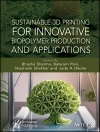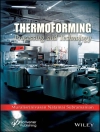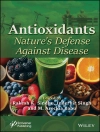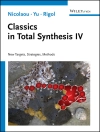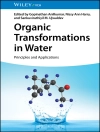Initially considered as a sub-class of ionic liquids, eutectic mixtures are formed by mixtures of low cost, often biodegradable Lewis or Bronsted acids and bases. Eutectic mixtures have gathered a growing scientific interest by the academic and industrial communities as they are interesting for many applications ranging from metal processing to biomass treatment or pharmaceuticals.
This volume gathers contributions by some of the most active research groups in the world using eutectic mixtures for applications in separation, extraction or pharmaceutical and medical applications. The different contributions aim at a large overview of the field for these particular applications by reviewing literature data and presenting ground breaking research in the different fields.
Table of Content
Preface.- Chapter 1. Understanding the Basics and Properties of Deep Eutectic Solvents; Tracy El Achkar, Hélène Greige-Gerges, Sophie Fourmentin.- Chapter 2. Deep eutectic solvents for innovative pharmaceutical formulations; François-Xavier Legrand.- Chapter 3. Therapeutic deep eutectic systems for the enhancement of drug bioavailability; Ana Rita C. Duarte.- Chapter 4. Solubility of gases in deep eutectic solvents; M. Costa Gomes.- Chapter 5. Hydrophobic deep eutectic solvents; John D. Holbrey.- Chapter 6. Methods for extraction of bioactive compounds from plant and animal matter using deep eutectic solvents; Hélène Greige-Gerges.- Chapter 7. Extraction of plant and algal polyphenols using eutectic solvents; Corinne Lagrost.- Index.
About the author
Prof. Sophie Forumentin works at Université du Littoral Côte d’Opale, Dunkerque, France. She conducts researches at the interface between supramolecular chemistry and environmental chemistry. Her group firstly published a paper on deep eutectic solvent with supramolecular properties in 2019. She supervised and/or co-supervised 12 Ph D students, 20 Master students and 2 post-doctoral fellows. She has now 114 publications listed in Scopus, with a total of 2183 citations and an h-factor of 30. She is also inventor of 1 patent and co-ordinated 3 books. She is the president of the French Cyclodextrin Society.
Res. Prof. Margarida Costa Gomes is a physical chemist and a chemical engineer working at the French National Centre for Scientific Research in Lyon, France. Her current research interests in the field of molecular thermodynamics of fluids and solutions aim to contribute to greener and more sustainable chemical processes by using environmentally friendly solventslike ionic liquids or eutectic mixtures. She was awarded the CNRS Bronze Medal and was an invited researcher at the Institute of Chemical and Biological Technology, Portugal and a visiting scholar at the Massachusetts Institute of Technology, USA, where she maintains a position as research affiliate. Margarida has supervised or co-supervised 26 Ph D thesis and 19 post-doctoral researchers and has published more than 140 papers with a Wo S h-index of 42.
Prof. Eric Lichtfouse is a biogeochemist working on climate, pollution and carbon sequestration at Aix-Marseille University, France, and Xi’an Jiaotong University, China. He has invented carbon-13 dating and has discovered temporal pools of individual substances in soils. He is teaching scientific writing and communication, and has published the book Scientific Writing for Impact Factors. He is founder and Chief Editor of the journal Environmental Chemistry Letters. He got the Analytical Chemistry Prize from the French Chemical Society, the Grand Prize of the Universities of Nancy and Metz, and a Journal Citation Award by the Essential Indicators. He is World XTerra Vice-Champion.


